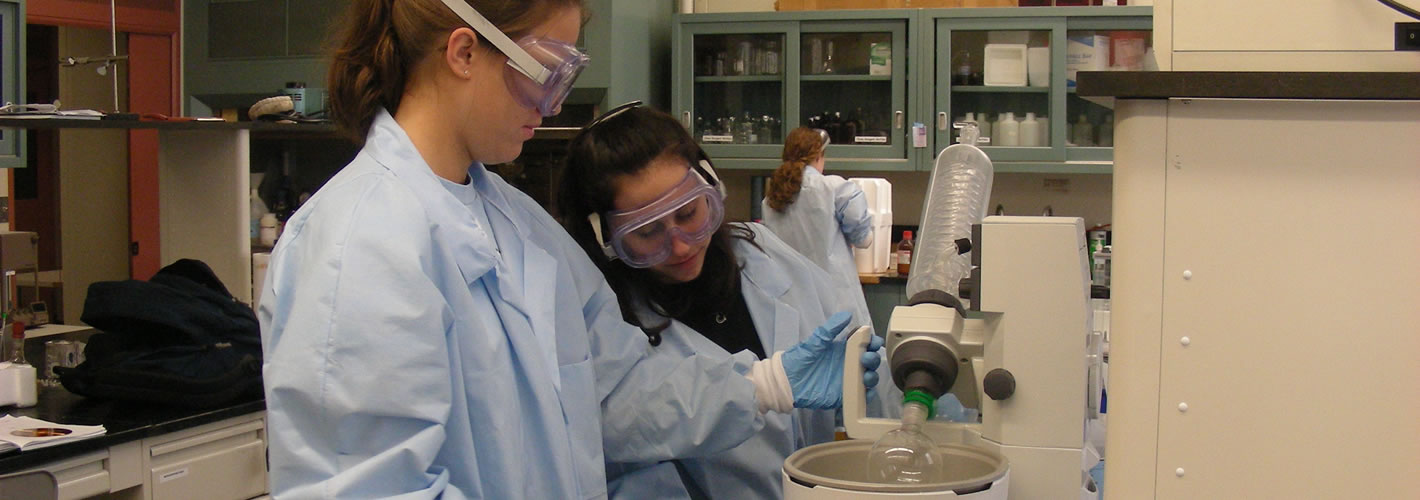Safety
I. IntroductionYou are encouraged to read this article which was published in the LA Times. If for no other reason it will serve as a reminder that the safety guidelines we are asked to follow serve a purpose -and that purpose is to allow us to return home each day to our friends and families without injury.
UPDATE: Here is an update to the article above. Please make sure all lab personnel wear appropriate safety attire while working in the lab!
II. Basic Undergraduate Laboratory SafetyThe biology laboratory can be a dangerous place for those who enter it cavalierly. Breakable glassware, sharp needles, hazardous chemicals, and possible pathogens are part and parcel of many biology labs, including undergraduate teaching labs. Yet when treated with respect and due caution, the risks of the laboratory can be managed so that its function as a center of scientific education and research can be undertaken safely. This requires the cooperation of each student, to know the potential dangers and the proper, safe procedures for the lab.
This page acts as a jumping off point for basic safety procedures. Look over and study the portions that are pertinent to your own situation. Basic safety procedures for undergraduate laboratories can be accessed on this website, as can general safety and security guidelines for the Biological Sciences Department. Additionally there is a link below to the website of Lehigh University’s Office of Environmental Health and Safety (EHS) web page, which maintains an extensive library of training videos, official Lehigh safety policies, and much else. These will be of interest to undergraduate students, graduate students, postdoctoral fellows, faculty, and visiting scientists.
IMPORTANT: Accidents happen ..... but then what? Click here to find out what to do!
III. Department Safety and Security Guidelines
IV. Links to Online Safety Training and InformationA. Lehigh University Office of Environmental Health and Safety
(Links to the following topics can be found on the EHS web page.)
1. Accident Reporting
2. Emergency Procedures - Emergency numbers - Emergency evacuation - EPPC (Environmental Preparedness, Prevention and Contingency Plan)
3. Policies on: - Bloodborne Pathogen Exposure Control Policy - Confided Space Entry Policy - Contractor Protection Policy - Department Safety Committee Policy - Eye Protection Policy - Fall Protection Policy - Hearing Conservation Policy - Lockout/Tagout, The Control of Hazardous Energy Sources Policy - Occupational Exposure to Hazardous Chemicals in Laboratories Policy - Overhead Traveling Crane Operation and Lifting Equipment Safety Policy - Personal Protective Equipment (PPE) Policy - Radioactive Materials and Machines Capable of Producing Ionizing Radiation Policy - Respiratory Protection Policy - Use of Biohazardous Materials in Research and Instruction Policy - Welding, Cutting, and Brazing Policy - Waste Disposal Policy - Worker Right-to-Know Policy
4. Training and Orientation a. Online Training on: TUTORIAL ON-LINE QUIZZES Bloodborne Pathogens Bloodborne Pathogens On-Line Quiz Confined Space Confined Space On-Line Quiz Compressed Gas Compressed Gas On-Line Quiz Fall Protection Fall Protection On-Line Quiz Lab Fire Safety Lab Fire Safety On-Line Quiz Hearing Conservation Hearing Conservation On-Line Quiz Lockout/Tagout Lockout/Tagout On-Line Quiz Laser Safety Laser Safety On-Line Quiz Cryogenic Gases Cryogenic Gases On-Line Qui b. Faculty Orientation
5 Right to Know
6. Computer Disposal
7. Programs a. Biosafety b. Chemical Safety c. Fire Safety d. MSDS (Material Safety Data Sheets - information - MSDS Links e. Occupational Safety - Asbestos Awareness - Confined Space - Ergonomics - Fall Protection - Hearing Conservation - Laser Safety - Lead Awareness - Personal Protective Equipment f. Radiation Safety g. Waste Disposal - Hazardous - Infectious/Biohazardous - Radioactive


